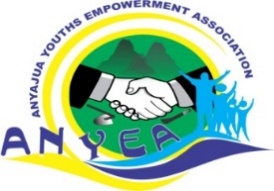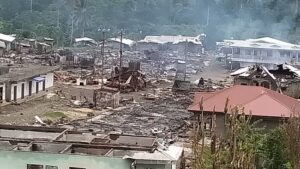In most of my trainings on human rights, monitoring, documentation and reporting i have attended, there has always been this questions coming up: why is the UN not intervening in the Anglophone crisis …
Here we have an attempted answer
. Non-international armed conflict( Is the Anglophone war or crisis internationalized?)
International humanitarian law contains two different legal frameworks dealing with non-international armed conflicts. On the one hand, article 3 common to the Geneva Conventions stipulates that “in the case of armed conflict not of an international character” a series of minimum provisions of international humanitarian law shall apply.37 The Conventions do not define what “non-international armed conflict” means, but it is now
commonly accepted that it refers to armed confrontations between the armed forces of a State and non-governmental armed groups or between non-State armed groups.38 Protocol II to the Geneva Conventions provides that the Protocol applies to armed conflicts “which take place in the territory of a High Contracting Party between its armed forces and dissident armed forces or other organized armed groups which, under responsible command, exercise such control over a part of its territory as to enable them to carry out sustained and concerted military operations
and to implement this Protocol” (art. 1).
please kindly read again to contextualized if there is any clear cut definition, look at the outlined features of non state actors and reflect with what we have…lets continue.
The International Criminal Tribunal for the former Yugoslavia’s Appeals Chamber has indicated that an armed conflict exists whenever there is protracted armed violence between governmental authorities and organized( organized) armed groups or between such groups within a State. It has further indicated that international humanitarian law applies from the initiation of such armed conflicts and extends beyond the cessation of
hostilities until a peaceful settlement is achieved.39 In the Haradinaj case, the Trial Chamber stated that the criterion of protracted armed violence is to be interpreted as referring more to the intensity of the armed violence than to its duration.
let end for today here:
it should be noted that nor matter the duration or the intensity of the hostilities, we shall end on the dialogue table, so why not silence the guns now and safe lives.

